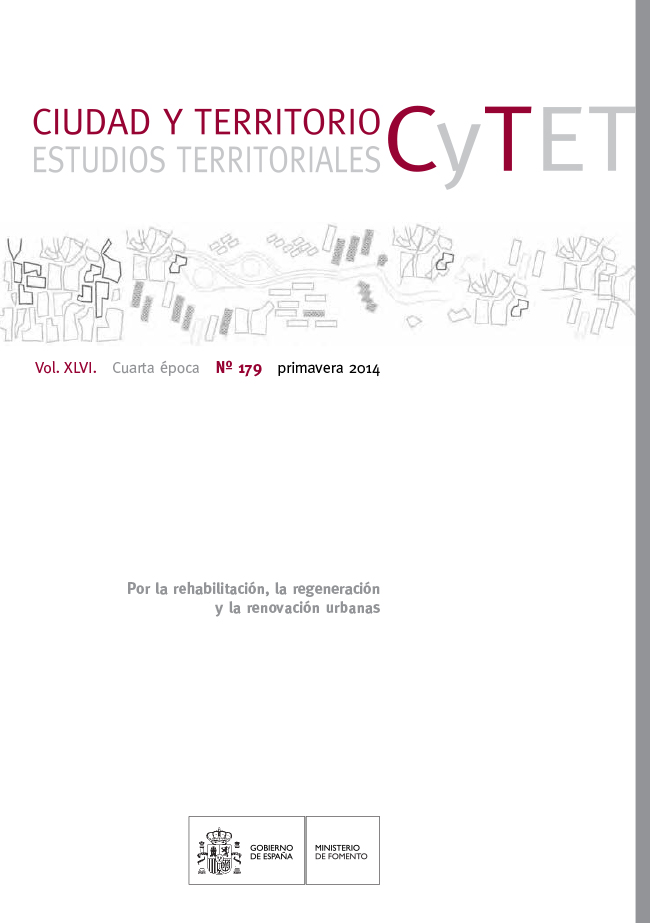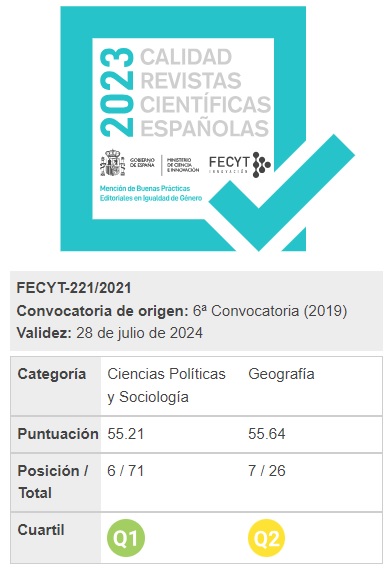Rehabilitation in Spain: a Business Vision. Could Rehabilitation Represent an Opportunity for the Spanish Economy?
Keywords:
Urban rehabilitation, construction sector, Act 8/2013Abstract
Over 1.6 million direct jobs have been lost in the Spanish construction sector since the
financial crisis began, with the impact being felt particularly in the building of new properties.
Current trends suggest no short-term recovery in this area, at least under the current business
model. In this article the author explores an alternative for the future of the building sector in Spain;
a new sector focusing on improving habitability and the energy performance of the existing housing
stock, capable of complementing the traditional model based on extensive urban development and
the building of new homes. To develop this proposal, the article reviews the current situation in the
sector, shows how the current model is not sustainable, and outlines the form that a new building
sector could take and the obstacles that must be overcome. Finally, the author proposes a number
of solutions to get this sector moving again in Spain, based on three approaches: financing, owner
involvement, and the new legal and institutional framework established by the Urban Rehabilitation,
Regeneration and Renewal Act 2013 (8/2013).
Downloads
Downloads
Published
How to Cite
Issue
Section
License
Copyright (c) 2014 Valentín Alfaya Arias

This work is licensed under a Creative Commons Attribution-NonCommercial-NoDerivatives 4.0 International License.
Considering the provisions of the current legislation on Intellectual Property, and in accordance with them, all authors publishing in CyTET give -in a non-exclusive way and without time limit- to the Ministry of Transport, Mobility and Urban Agenda the rights to disseminate, reproduce, communicate and distribute in any current or future format, on paper or electronic, the original or derived version of their work under a Creative Commons Attribution-NonCommercial-NoDerivative 4.0 license International (CC BY-NC-ND 4.0), as well as to include or assign to third parties the inclusion of its content in national and international indexes, repositories and databases, with reference and recognition in any case of its authorship.
In addition, when sending the work, the author(s) declares that it is an original work in which the sources that have been used are recognized, committing to respect the scientific evidence, to no longer modify the original data and to verify or refute its hypothesis. Author(s) also declare that the essential content of the work has not been previously published nor will it be published in any other publication while it is under evaluation by CyTET; and that it has not been simultaneously sent to another journal.
Authors must sign a Transfer of Rights Form, which will be sent to them from the CyTET Secretariat once the article is accepted for publication.
With the aim of promoting the dissemination of knowledge, CyTET joins the Open Journal Access (OA) movement and delivers all of its content to various national and international indexes, repositories and databases under this protocol; therefore, the submission of a work to be published in the journal presupposes the explicit acceptance by the author of this distribution method.
Authors are encouraged to reproduce and host their work published in CyTET in institutional repositories, web pages, etc. with the intention of contributing to the improvement of the transfer of knowledge and the citation of said works.








 Enlace a CyTET en Linkedin
Enlace a CyTET en Linkedin